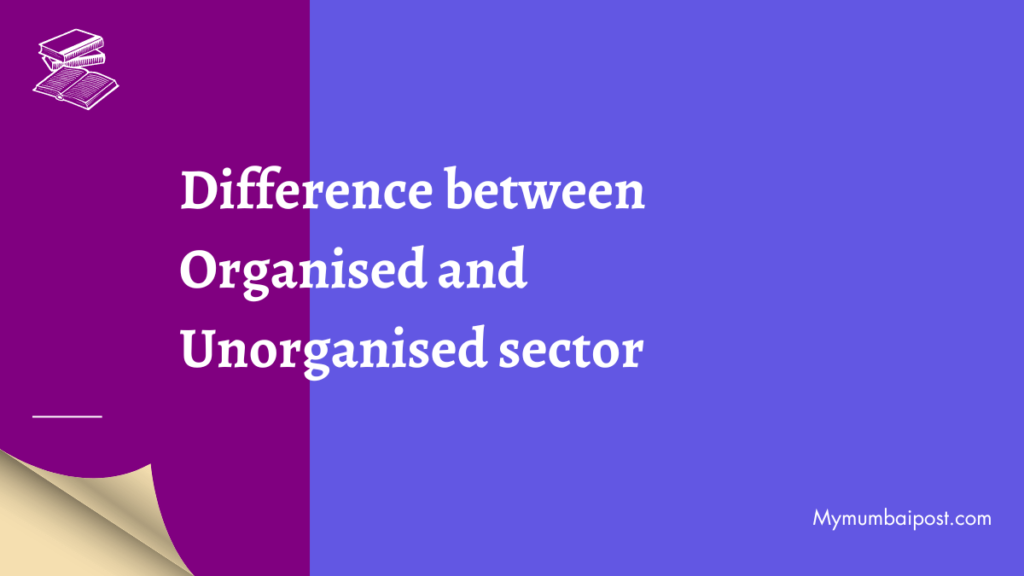
Discover Key Difference between Organised and Unorganised sector
When it comes to the world of business and employment, understanding the difference between the Organised and Unorganised sector is crucial. Let’s explore what sets these two sectors apart and how they impact the workforce and the economy as a whole.
Difference between Organised and Unorganised sector
When it comes to the economy, the terms “organized sector” and “unorganized sector” are often used to distinguish between types of industries and businesses. While both sectors contribute to the overall economic growth of a country, they differ in several ways. Here are ten differences between the organized and unorganized sectors:
Formality: The organized sector refers to businesses that operate under formal regulations, while the unorganized sector includes businesses that operate informally, without any formal regulations.
Size: The organized sector includes large-scale businesses, while the unorganized sector comprises small-scale businesses.
Employment: The organized sector provides formal employment opportunities, while the unorganized sector provides informal employment opportunities.
Skill level: The organized sector employs skilled and educated workers, while the unorganized sector employs mostly unskilled and low-skilled workers.
Wages: The organized sector pays higher wages compared to the unorganized sector, where wages are usually low.
Benefits: The organized sector provides employee benefits such as health insurance, pensions, and paid leaves, while the unorganized sector does not provide such benefits.
Productivity: The organized sector is usually more productive due to the use of modern technology and machinery, while the unorganized sector relies on manual labor.
Also Read: Learn about 10 Difference between Hazard and Disaster
Contribution to GDP: The organized sector contributes more to the Gross Domestic Product (GDP) of a country than the unorganized sector.
Taxation: The organized sector pays taxes to the government, while the unorganized sector often evades taxes.
Legal framework: The organized sector operates within a legal framework, while the unorganized sector often operates outside the legal framework.
While both sectors play important roles in the economy, the organized sector is more formal, structured, and regulated, while the unorganized sector is informal, unstructured, and operates outside formal regulations. Understanding the differences between these sectors is crucial for policymakers to make informed decisions that will benefit the economy as a whole.
You can watch the video for better understanding: